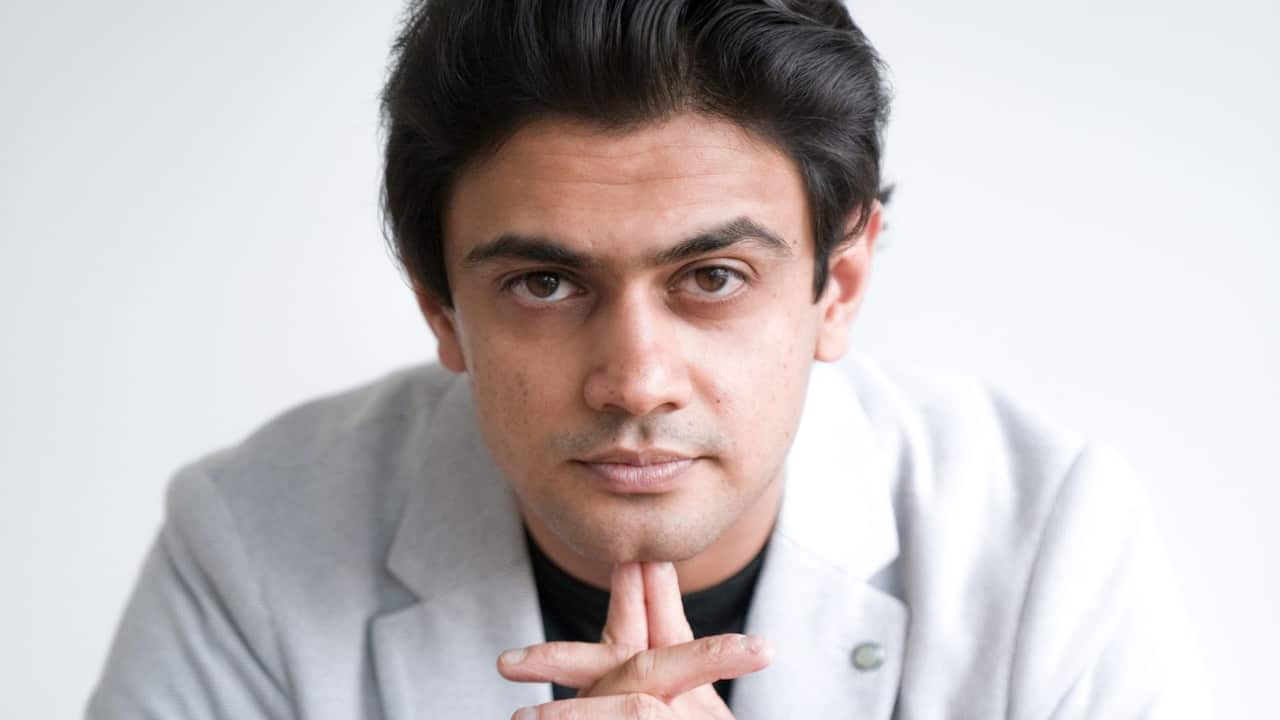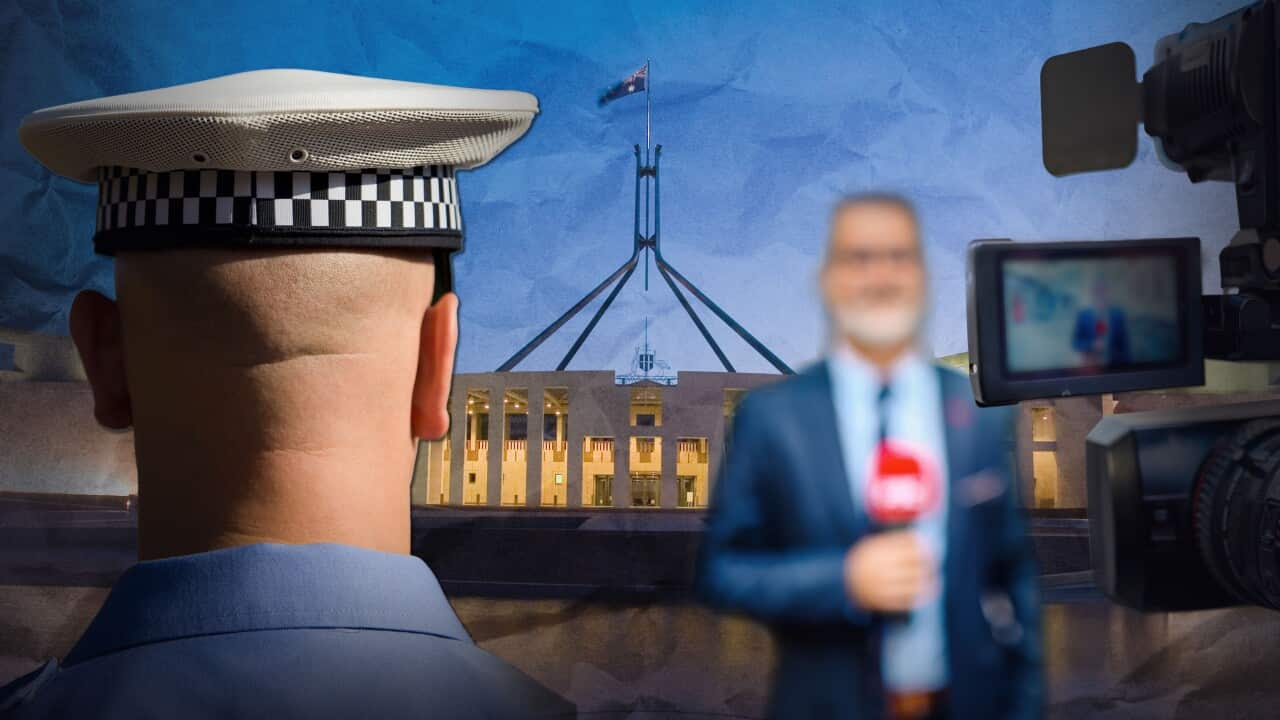The media. The government. Even the police. Our trust in institutions has taken a nosedive. But why? This week, Insight explores our waning trust in institutions, and whether it can be restored. Watch Losing Trust on.
Stream free On Demand

Losing Trust
episode • Insight • News And Current Affairs • 52m
episode • Insight • News And Current Affairs • 52m
Eric Gibson never met his great-grandfather. The last place his family saw his "pop" was in the back of a police patrol wagon.
Eric grew up with the understanding his great-grandfather died in custody due to police mistreatment.
"And due to that, there was a flow-on effect through each generation, where there was both conscious and subconscious distrust towards police," he told Insight.
Eric, who is a Whadjuk Noongar and Meriam Magaram man from Western Australia, says because of what happened his family and community had a wariness and anxiety towards the police force.
"You could sit at a table with people I grew up with and someone could give some story of mistreatment done by police to someone they know."
In 2023, 68 per cent of Australians reported they trusted the police, according to an OECD Drivers of Public Trust Survey.
However, levels of trust tend to be lower among Aboriginal and Torres Strait Islander communities due to a range of reasons including high incarceration rates and police participation in the forced removal of children from their families that has created intergenerational trauma.
So when Eric became a police officer in 2019, it was a "surreal" feeling.
"I look at myself and I’m wearing a uniform of a person that I grew up not trusting," he said.
"It was this feeling of: 'What on earth am I doing?'"
Now an acting sergeant with one foot in each world, Eric believes he has a unique opportunity.
"I try to do everything I can to be a good person … and build trust within the community towards the blue uniform."
But Eric’s story is a part of a larger problem in restoring declining levels of institutional trust.

Eric at his police graduation ceremony with his siblings Sharlise and Kevin. Source: Supplied
'Disheartened and disappointed' by the government
Stephen Spencer’s trust in government was "blown apart" during the COVID-19 pandemic.
The Army veteran had been living and working in the United Arab Emirates with his wife and two children when the pandemic started.
When told his contracted role as a training adviser to the UAE military was wrapping up, Stephen and his family tried to return to Australia for almost six months but due to flight cap restrictions and border closures, remained overseas.
While recognising it was a trying time for governments, Stephen didn’t feel supported by the Australian government in trying to get his family home, mainly because of the lack of information and personal support available.
"It was so difficult to get any information outside of an automated response or something posted on social media — to actually get any information, clarity or even just words of support from any anyone in government."
He says he wrote "countless" letters to people in government but mostly received automated replies.
"I certainly didn't feel that I had any right to any special treatment or anything based on [having served] ... but I was just incredibly disheartened and disappointed by the government response."
Speaking generally of the government’s decision-making during the pandemic, Stephen wishes there was more transparency.
"I know we can't see all of it, as a general public, but I think we should certainly see more of it … particularly in in times of crisis — like COVID — where it radically affects your day-to-day existence".

Stephen Spencer while he was serving in Afghanistan in 2008. Source: Supplied
A crisis in trust
Globally, the number of people who think leaders lie to us is at an all-time high.
As many as 69 per cent of people said they worry government, business and the media purposely mislead the public by saying things they know are false or make gross exaggerations, according to the Edelman 2025 Trust Barometer global report.
There is also a correlation between experiencing negative life events and low trust in public institutions — as per the Trust and Satisfaction in Australian Democracy 2023 National Survey.
Professor Andrea Carson, an expert in political communication at La Trobe University, says Australians' trust of the government eroded during the pandemic.
"We saw in the data that we were looking at trust starting to fall. But it didn’t fall below pre-pandemic levels until September 2021, when people had put up with a lot of lockdowns, a lot of compliance, a lot of the military and police presence."
She said lower trust levels in Australia and other developed economies has meant "democratic backsliding is a real concern".
Democratic backsliding, also known as autocratisation, is the decline in democratic qualities of a political regime.
But she pointed out safeguards like compulsory voting, and national broadcasters means Australia is "not as badly positioned as other places".

Lawyer and freelance journalist Khushaal Vyas says the lack of trust in Australian media is partially due to its lack of cultural diversity. Source: Supplied
A disparity of impact
Like Stephen, western Sydney lawyer Khushaal Vyas criticises certain decisions enacted by institutions during the pandemic within his local area.
He notes that while the western Sydney community understood the need for restrictions during this time, he felt there was a significant disparity of police presence between different areas in Sydney.
"Where you had people crowded on Bondi Beach [in Sydney’s Eastern Suburbs], you had people in our communities that were not able to go out at all."
A 2024 Western Sydney University report found that Western Sydney communities — especially its children — were disproportionately impacted by the increased restrictions and surveillance.
Khushaal noted the police had given no formal apology.
"People are very, very forgiving, so long as you're willing to come to the table to see them and meet them halfway ... I think that’s what was lacking in that response".
Khushaal, who has hosted podcasts and contributed to online news articles, also feels there is a lack of , which he believes stems in part from its lack of cultural diversity.
Australia’s non-European population (for example Asian, African, South American, Middle Eastern) is at least 19 times greater than the representation on commercial networks' [news and current affairs television programs], where it made up no more than 1.3 per cent of on-air talent, according to 2022 research by University of Sydney and Media Diversity Australia.
"We are now in a scenario where podcasting or independent media is growing and people are losing trust in those mainstream media sources," Khushaal said.
"If we think that we can actually do it in a more meaningful capacity and speak towards those sorts of stories, why not?"
How much trust should we have?
Andrea highlights that overall, Australians are increasingly mistrusting than distrusting.
"Distrust is where they've closed the door and they're not going to trust anymore," she said.
"Mistrust would seem to be ... where people are distrusting, but they're still open to the idea that they might come back. They might be again open to trust again."
She said trust with a degree of scepticism is "probably the healthier form of trust to have".
Too much trust can be dangerous, she said.
"This is people who might be vulnerable to being scammed because they are trusting souls, have an open heart and take things at face value without having a degree of scepticism."
Craving for authenticity
For Stephen and Eric, the path to restoring trust is the same: authenticity.
Stephen believes that to be good leaders, politicians should be "admitting when things didn’t go right, or at least explaining the process behind certain decisions that are made".
In Eric’s case, authenticity means making a point to remember small details about anyone he interacts with so he can always strike up a conversation when he bumps into them in his small town.
"I usually see these people who I deal with during work and during crisis while I’m at the shops or while I’m taking my dog for a walk," he said.
Informed by an "intergenerational handing down of caution" towards the police, it’s now one of Eric’s biggest goals to make younger members of the community feel confident going to him if they see "something wrong happening in their household".
"I think about my childhood and how I grew up not trusting police. But now I’ve been given this opportunity to make a difference," he said.
"Trust in its definition is someone being vulnerable. If you respect that vulnerability, it goes a long way."
And for more stories on sex, relationships, health, wealth, grief and more, head to hosted by Kumi Taguchi. Follow us on the , , , or wherever you get your podcasts.
LISTEN TO

Insightful: A new podcast from SBS Insight
SBS News
01:00







